14 foods to help reduce inflammation

Few people take seriously all the negative impacts that harmful products have. One of the main problems is that junk food and bad habits cause inflammation. Those, in turn, can develop into something more serious if the inflammation becomes chronic.
It affects the gut the most when it comes to food, damaging cell walls and harming beneficial bacteria. The latter not only live in our body but also play an important role in the metabolism and production of anti-inflammatory compounds and maintaining the integrity of the intestinal mucosa.
Therefore, it is worth excluding foods that cause inflammation from the diet, such as soda, red meat, fried and smoked foods, hydrogenated oils, alcohol, and other foods and drinks that negatively affect the body.
Instead, you should eat foods that either reduce inflammation themselves or are beneficial for bacteria that reduce it in the process of life. Removing inflammation will feel a surge of energy, improved mood, health, and general well-being.
Fatty fish
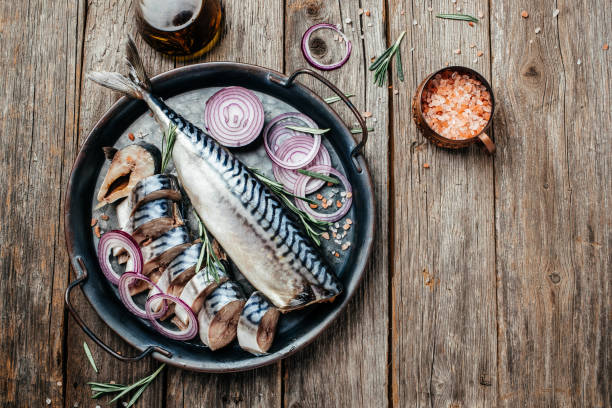
We are constantly told that fat is only harmful and that it is best to take skimmed products for health and figure. But it is not true; on the contrary, the lack of fat leads to disorders in the body. You have to distinguish between healthy and unhealthy fats.
Studies have shown that adding fatty fish to the diet helps to reduce inflammation and improve brain and heart health. This effect is due to the presence of omega-3 fatty acids in fish. Not necessarily expensive redfish like salmon and tuna, but herring, mackerel, and sardines can be included in your diet to improve your health.
Cherries
Cherry fruits are not only tasty and aromatic but also have anti-inflammatory properties. Moreover, some researchers believe that tart cherry extract is comparable in its effect to that of non-steroidal anti-inflammatory drugs.
Because of this, cherries are often prescribed to people with arthritis as an adjunct to the main treatment. It’s all about many antioxidants, polyphenols, and flavonoids that reduce damage caused by oxidative processes and suppress the production of cytokines – proteins, high levels of which can provoke an increased inflammatory response.
Bell pepper
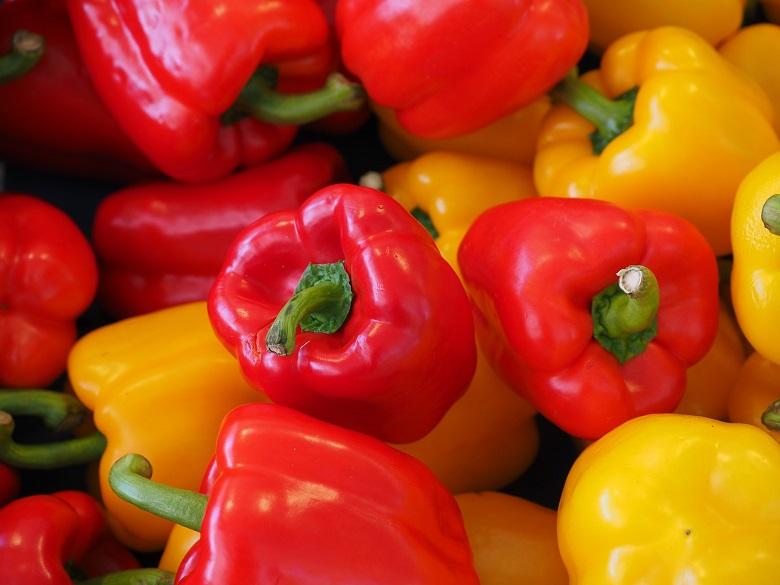
We believe that citrus fruits are the richest source of vitamin C. But this is far from the case because more of this trace element is contained, for example, in bell peppers. Vitamin C is a powerful antioxidant that supports the immune system. Orange, yellow, and red bell peppers are recommended as they contain vitamin A, beta-carotene, and lycopene, which help suppress cytokine production.
Turmeric
Turmeric is one of those condiments that enhance food flavor and help improve health. The use of turmeric helps to reduce chronic inflammation, has a beneficial effect on joints, reduces their swelling, and reduces the risk of developing liver disease, diabetes, indigestion, and other diseases.
Some researchers believe that curcumin, a substance found in turmeric, is also an immune modulator that prevents the development of Alzheimer’s disease.
Ginger
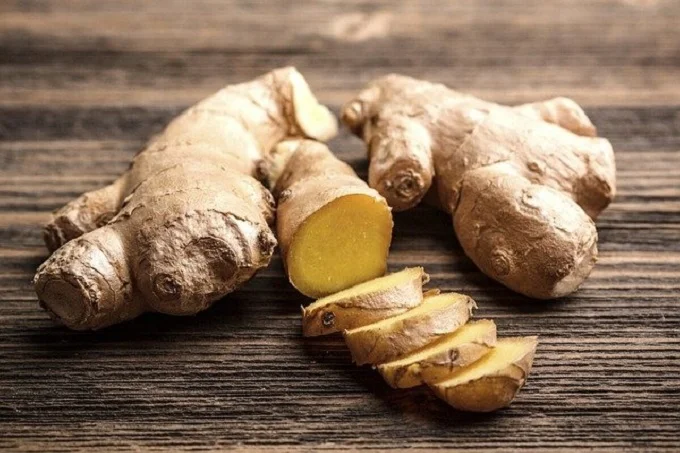
Ginger root is believed to have anti-inflammatory properties due to its antioxidants. It also relieves nausea, indigestion and helps improve digestion. In addition, ginger helps violate fat and cholesterol metabolism, normalizing the condition of the blood vessels.
Avocado
Not so long ago, few people were interested in avocado, but today it is almost one of the main representatives of the “superfood” category. This is because avocados are high in healthy monounsaturated fats and nutrients that help improve cell health and prevent premature cell death.
Avocados are also thought to have lower inflammation-reducing carotenoids and tocopherols in avocados that reduce the risk of certain cancers.
Nuts
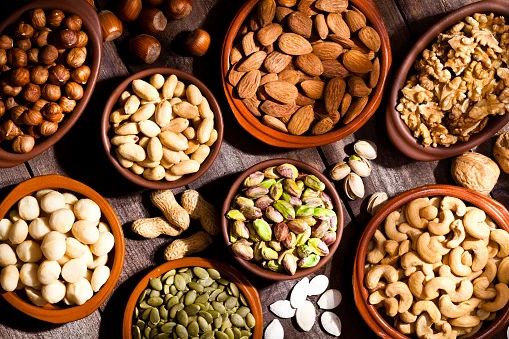
Nuts are rich in polyunsaturated fats, vitamins including E, and other components that reduce inflammation. So, for example, vitamin E works as a kind of sponge, absorbing free radicals, which prevents oxidative damage to cells and, as a result, reduces inflammation. In addition, vitamin E and other beneficial micronutrients in nuts help maintain immunity in good shape to resist inflammation better and prevent it from becoming chronic.
Olive oil
It is not for nothing that the Mediterranean diet is considered one of the best because it is almost perfectly balanced. Olives and olive oil are some of the most important ingredients in this diet. They are rich in polyunsaturated fats as well as oleocanthal. In addition to anti-inflammatory effects, the latter is believed to reduce the risk of certain types of cancer by reducing systemic inflammation.
Dark leafy vegetables
These are the same vegetables that turned your nose up as a child, like cabbage, broccoli, and the like. And in vain, because they are rich in antioxidants and vitamins such as A, B, and C. In addition, they are rich in fiber, which promotes better digestion.
Thanks to this, food does not stagnate in the intestines, which reduces inflammation. Also, dark leafy vegetables contain substances that help the reproduction and life of beneficial bacteria. Additionally, dark leafy vegetables improve circulation and reduce oxidative damage to cells.
Dark chocolate and cocoa
Chocolates and other sweets containing a large amount of sugar, including milk chocolate, are not particularly good for the body. But dark chocolate, which is low in sugar, like cocoa, contains flavonols, which suppress inflammation and help reduce the risk of heart disease and stroke. Plus, they help improve memory and slow brain aging.
Green tea
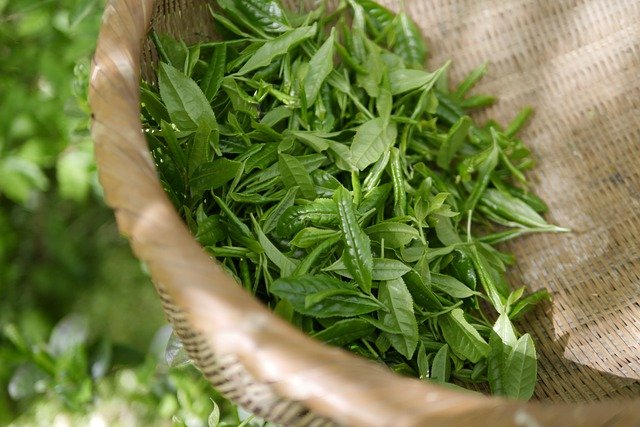
Green tea is one of the healthiest drinks globally, as it is rich in antioxidants and polyphenols that reduce inflammation in the body and support cell health and immune strength. The main anti-inflammatory component of green tea is epigallocatechin gallate, catechin, which has been shown in some studies to help reduce cancer risk by protecting fatty acids in cells from oxidative damage and suppressing cytokine production.
Blueberries and other berries
Blueberries are rich in polyphenols, which have antioxidant effects and help reduce the risk of heart disease and cancer. Blueberries are also believed to be beneficial in treating gastrointestinal disorders and diabetes and improving vision. In addition, blueberries are rich in vitamins C, E, fiber, and other valuable micronutrients.
Carrots

This plant contains beta-carotene, which the body converts to vitamin A. This, in turn, is a powerful antioxidant that reduces inflammation. Carrots activate intracellular redox processes, regulate carbohydrate metabolism, have analgesic and wound healing properties.
Studies prove that carrots have a detrimental effect on harmful microorganisms due to the large number of phytoncides they contain.
Legumes
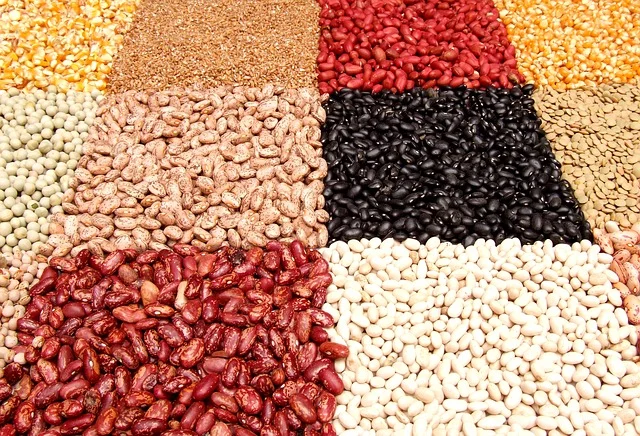
Legumes such as beans are a rich source of protein and contain polyphenols that have anti-inflammatory effects. Legumes are rich in vitamins B, C, E, and K, essential amino acids, folic acid, magnesium, sulfur, and other trace elements. They also contain a lot of fiber, which helps better digest food, reducing inflammation in the intestines.




